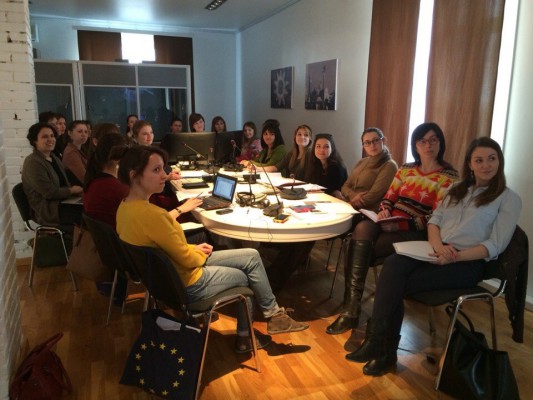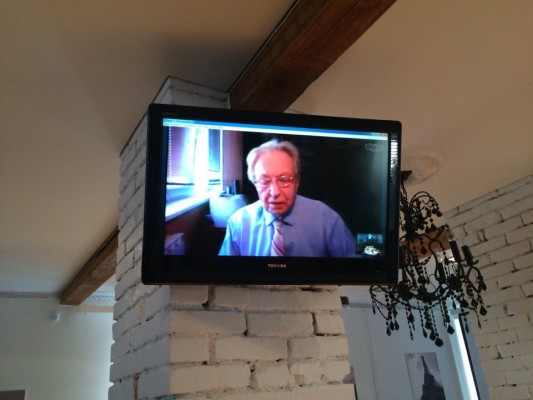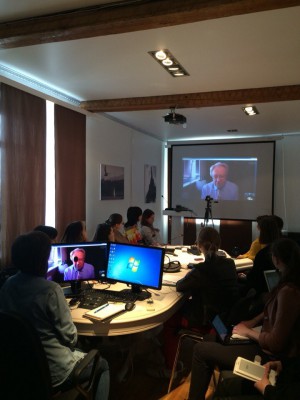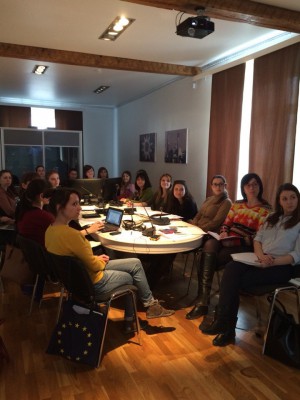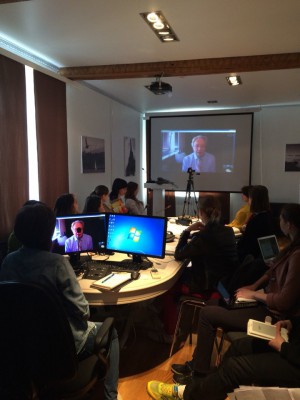Virtual class with Vladimir Faekov
On March 20, MA students of Caspian Higher School of Interpreting and Translation had a virtual class with Vladimir Faekov, a diplomatic official, professional interpreter and lexicographer, officer of the Language Department of the Ministry of Foreign Affairs in the USSR. In 1980s, he headed the Russian Interpretation Unit of the UN Secretariat Conference Service in New York. In 1991 Mr Faekov became the head of Russian Translation and Interpretation Service at the European Bank for Reconstruction and Development in London. Apart from being an interpreter, Mr Faekov runs training courses for young interpreters and continues his work on compiling dictionaries. He has been the Director of Advanced Training for Interpreters at the Russian the Ministry of Foreign Affairs since 2003.
The virtual class was dedicated to the history of interpretation service in the Ministry of Foreign Affairs of Russia, which was established 450 years ago, as well as to the practical aspects of an interpreter’s work. In the beginning of the class, Vladimir asked the students to lay flowers at the foot of the Budapest statue of an interpreter Ivan Ostapenko, in case our MA students have a chance to visit the city. It is the only statue in the world erected in honour of an interpreter.
Before starting the lesson, the students, as it is usually done by professional interpreters, did some warming up exercises including reading tongue-twisters in Russian and English. Then, Mr Faekov told the students about some great Russian translators such as Alexander Pushkin and Alexander Griboedov and enlisted some aspects important for the newcomers to profession: you shouldn’t correct yourself if you don’t want to lose trust; you should prepare for the interpretation session by reading encyclopaedias and articles on the topic. The lesson was rather interactive and students had an opportunity to ask questions to the experienced interpreter. Luckily for the MA students, this virtual class was not the last one. We are planning to hold more virtual interpretation classes. The students got some homework for the next lesson: to translate a synonymic row and explain semantic differences of the words. Inspired by the experience of the professional interpreter, our MA students are looking forward to the forthcoming lessons.






